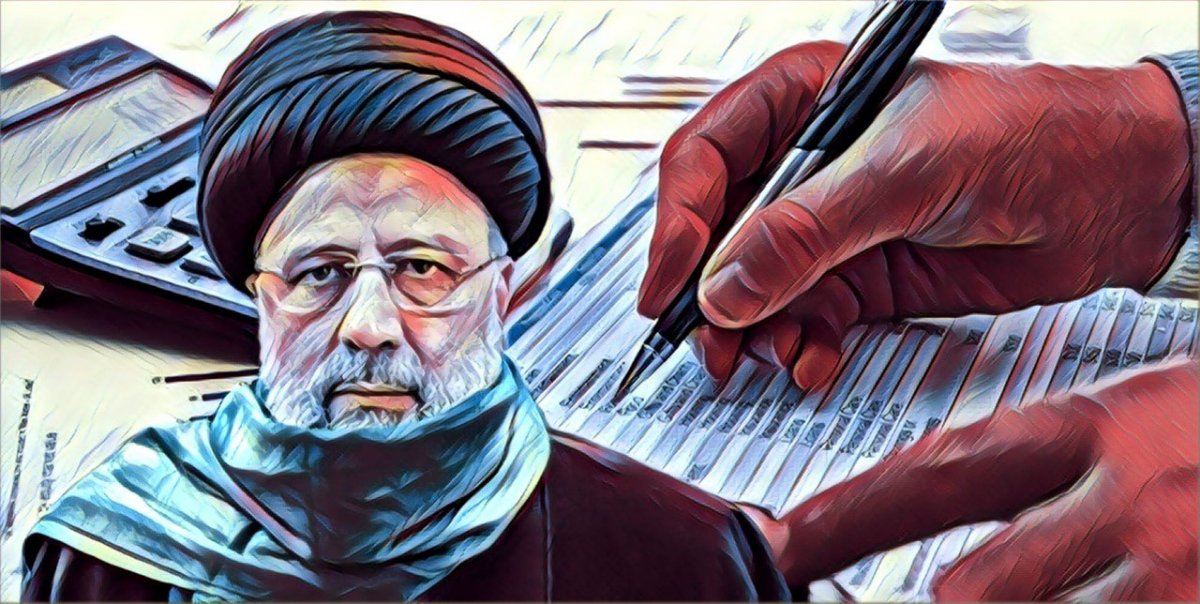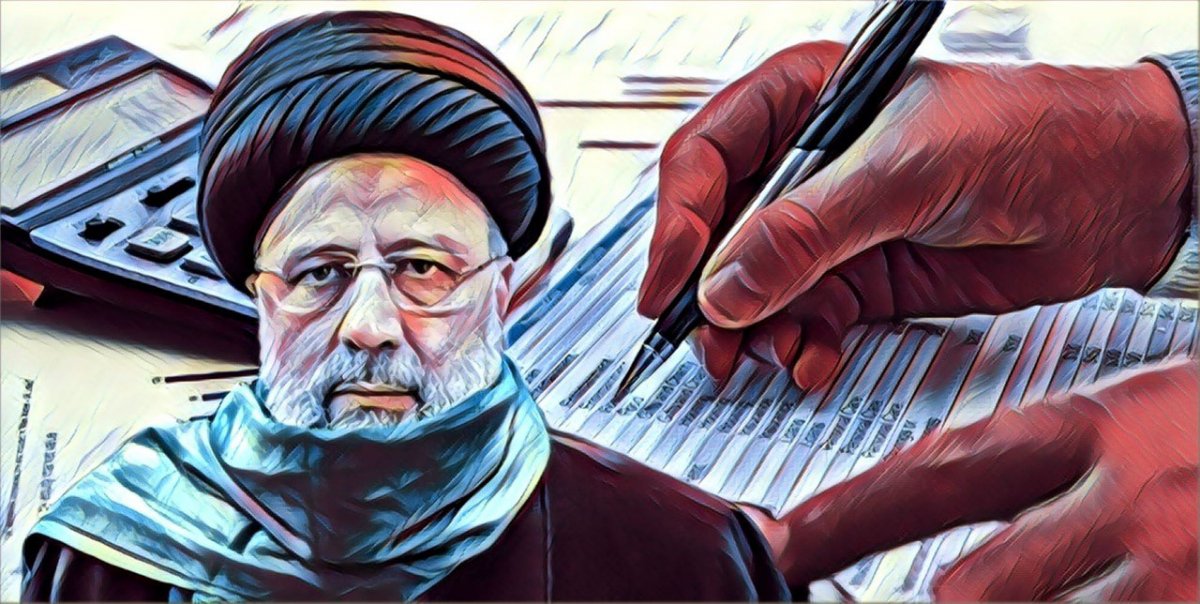How Raisi’s Hidden Taxes Milk the People
How Raisi’s Hidden Taxes Milk the People. According to Iran Gate, the tax collection rate from the people in Raisi’s government has faced a significant increase. However, the point is that Raisi has not only taken steps to increase direct taxation but is currently collecting hidden taxes from citizens in various ways that people are not directly aware of.
Iran Gate has addressed the issue of hidden taxes in a two-part series. This part, which is the second report in this series, explains four other methods of collecting hidden taxes. In the previous part, inflationary hidden taxes and oil taxes were mentioned and explained to the audience. In this part, communication taxes, market taxes, demographic taxes, and savings taxes are discussed.
Hidden Internet Tax
Internet users in Iran, due to the Raisi government’s filtering of all social networks, are forced to pay an additional cost besides what they pay for traffic. Interestingly, this cost, which is mainly spent on purchasing VPNs, indirectly goes into the government’s pocket.
In fact, the Raisi government has not only severely limited the free flow of information and access to free internet with widespread filtering of social networks, but it also makes a huge income from this. As mentioned, this income is not directly received by the government, but among them are several companies that mostly carry the label of being knowledge-based and practically sell VPNs. These companies are usually connected to the government of Ebrahim Raisi and its senior officials through one or two intermediaries.
In the most well-known example that was also raised on social networks, there was a company called Betternet, which belonged to the son of Ensieh Khazali, the deputy of Seyed Ebrahim Raisi. This company, registered in Canada, is practically a manufacturer and seller of services to bypass filtering in Iran, and many Iranian users use it to overcome the extensive restrictions in cyberspace.
In other words, the cost that each Iranian user regularly pays monthly to purchase a VPN is a kind of tax that the Raisi government has imposed on them. There is no precise estimate of the financial turnover of the VPN buying and selling market in Iran, but it is estimated that this market has an annual turnover of over 6 trillion tomans, which is astonishing and unparalleled in its kind.
Market Tax
Markets for cars, electronics, home appliances, gold, and coins are all subject to direct and indirect taxes in some way. If we overlook the direct taxes on these markets, which have also been intensified recently, we can see the prominent footprint of hidden taxes in these markets. In the car and motorcycle market, it has been repeatedly stated that the price of low-quality domestic productions is about 3 to 4 times the global car prices.
This 400% difference is essentially a hidden tax that the Ebrahim Raisi government collects from the people in exchange for the monopoly it has created. The price gap between domestic productions and global markets was about 200% before the Raisi government, but with the rise of the thirteenth government and the slogan of supporting national production, the price gap became much deeper.
The same policy is observed in the import of products like mobile phones. Some brands, like Apple, not only face the mentioned price gap, but the user also has to pay a significant amount under the title of phone registry to the government, which is practically considered as tax collection by the government. It should be noted that both legal and illegal imports of mobile phones are mainly carried out by military entities in Iran, and when the law banning the import of Apple was passed and communicated by the Raisi government, the profit margin for importing these products also increased dramatically.
Currently, the latest model of Apple phones is traded in global markets for about $900, which would be around 40 million tomans at the free market exchange rate. However, if someone wants to buy and use the same device inside the country, they have to pay between 130 to 140 million tomans, which includes the registry cost.
Hidden Population Growth Tax
The Raisi government has placed the Population Youthfulness Law at the top of its agenda since the beginning of its work. This law has imposed very high costs on ordinary people. For instance, the Raisi government granted the privilege to mothers of second, third, and fourth children and more to register for a car at factory price and out of turn without even having a driver’s license.
This action has two kinds of destructive consequences. First, the government is giving away from the public’s pocket because only 15% of the automakers’ shares are directly owned by the government. A significant portion of these companies’ shares belong to real and small shareholders in the stock market. In fact, the Raisi government is paying the cost of rejuvenating the population from the shareholders of car manufacturing companies, which is itself a form of hidden tax.
On the other hand, this policy has caused price tension in the market, meaning consumers also had to buy domestic products at much higher prices because both the automakers were seeking to compensate for the incurred loss and major market players, who are mostly connected to the government and have access to insider information, also raised prices by creating news waves in the market.
Of course, the examples of hidden population growth taxes are not limited to the issue of unregulated car sales. The allocation of land to mothers, unregulated insurance for babies born after 2021, and the allocation of unaccounted loans and banking facilities to these families are also among the examples of hidden taxes that people pay for the policy of rejuvenating the population and increasing birth rates in the country. In fact, the government boasts of implementing an ideological law with money that belongs to the people, which aligns with the wishes of the leader of the Islamic Republic, but the costs of this government propaganda maneuver are borne by the ordinary people of the country.
Tax on Savings
The interest rate in Iran is currently about negative 35 to negative 40 percent, meaning if someone deposits their liquidity in the bank at the beginning of the year, they will lose about 35 to 40 percent of their money’s value by the end of the year because the gap between the inflation rate and the deposit interest rate in Iran, as mentioned, is negative.
Through this, the government not only withdraws liquidity from the markets but can also somewhat compensate for the banks’ imbalances by taking advantage of the negative interest rate. On the other hand, it has recently been revealed that legal accounts for savings must also pay direct taxes, which is rare in the world. In fact, the Raisi government not only profits from price fluctuations resulting from increased inflation but also exploits the inefficiency of financial markets in preserving the value of people’s assets in banks and compensates for its imbalances.
How Raisi’s Hidden Taxes Milk the People Part One
Instagram influencers and celebrities in Iran to pay income tax
English
View this article in English


